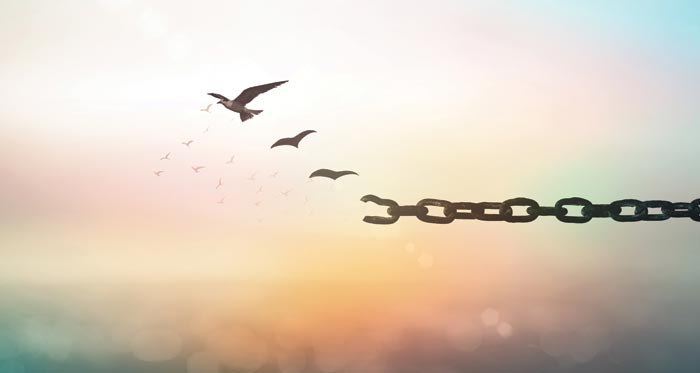Jewish leaders in the United States and in Israel are encouraging an openness to what they describe as a “new Germany,” a place they say is truly atoning for its past. At the very least, they argue, it deserves the support of the American Jewish community because of its strong support of Israel and its embrace of Jewish immigrants who are streaming in at the rate of 10,000 per year.
This year marks the opening of a major Holocaust memorial in Berlin and a surge of travel to Germany by a half-dozen American Jewish groups venturing over a threshold that had seemed forbidden for decades.
The groups going to Germany include some of the most powerful in the United States. The North American Boards of Rabbis held its annual conference there this year, as did the Conference of Presidents of Major Jewish Organizations, both for the first time.
Malcolm Hoenlein, executive vice president for the Conference of Presidents, said he was pleasantly surprised at the Germany he encountered, a place where there are visible shows of contrition for the past, whether on TV, in school or in public memorials.
United Jewish Communities (UJC) is preparing a second mission to the country in October, anticipating that some 150 major donors will jump at the opportunity to meet German officials, connect with the world’s fastest-growing Jewish community and learn about the German-Israel alliance.
Mission co-chair Steve Selig, past president of Atlanta’s Jewish Federation and chairman of the human services and social policy section of UJC, said he goes with definite emotional baggage.
“When I see an elderly person driving a taxi cab, I’m going to wonder what they did in their earlier life,” Selig said. “But I’m going to try and go with an open mind and an open heart.”
Advising Caution
Other Jewish groups are also going. San Francisco’s Jewish Federation sponsored a mission to Germany this month, and next month a group of 15 graduate students from Brandeis University will experience living in Germany for 10 days, courtesy of the German government.
“The trip isn’t designed to open minds, but certain myths do fall away once you’re exposed to a living reality,” said Brandeis professor Eugene Sheppard, one of two faculty members who’ll accompany the students.
A colleague, Jonathan Sarna, chairman of the university’s Near Eastern and Judaic studies department, added that the trip also isn’t designed to whitewash the past “but to help people understand that 50 years later there’s a very different Germany than the one they read about in the ’30s and ’40s.”
Germany’s Jewish population now numbers about 100,000, two-thirds of them Russians who are taking advantage of economic incentives offered by the German government. Immigration to Germany is restricted to ethnic Germans and Jews, who are entitled to subsidies, language training and other social benefits.
Rebuilding internally and through tourism is fine, as long as Jews remain vigilant, said Rabbi Marvin Hier, dean and founder of the Los Angeles-based Simon Wiesenthal Center, an organization dedicated to teaching the Holocaust and fighting on behalf of victims of racism, terrorism, genocide and anti-Semitism.
Israel is dependent on Germany as a trading partner and is its only champion in the European Union. American Jews, Hier said, need to be the voice that reminds Germany of its responsibility to world Jewry and to Israel “so that Germany doesn’t become one of the other European countries that can turn on a dime. The greatest thing Americans can do is make sure that Israel remains a free, strong Jewish state.”
But Hier worries about frequent right-wing and neo-Nazi incidents in Germany. And he is cynical about Germany’s attempts to memorialize the Holocaust. The United States built a major museum in Washington and cities throughout the country have opened their own permanent exhibits, whereas Germany’s new Holocaust memorial will be a static monument that can be apprehended only through the eyes, he said.
“I don’t doubt it’ll be very impressive,” Hier said, “but that’s not the way you educate a younger generation, by taking them to a place of silence and telling them to look at stones. What can one learn from the Washington Monument or Lincoln Memorial? I don’t think we get the essence of their lives through the memorials.”
Inside View
Having lived and worked in Stuttgart for nearly a year, Cyril Benitah isn’t quite sure what to think. The 30-year-old engineer moved from metro Detroit to Germany to continue working for DaimlerChrysler.
“On the outside, it seems to be open and friendly, but I’ve got some anxiety about letting anyone know about my background,” he said.
While they were sitting in a cafe one afternoon, an American friend who has lived in Germany for nearly 20 years as an army officer blurted out that hatred for Jews is still alive and well in Germany, an unbidden remark that threw Benitah off balance.
Of course, anti-Semitism is alive in Germany, a fact that even Berlin-based Eugene DuBow, senior advisor with the American Jewish Committee, concedes.
“I’m old enough to have lived through the Holocaust and the establishment of the State of Israel,” said DuBow, 68. “I dealt with my prejudices by meeting people, many of whom were horrified by what went on in their country, what their parents and grandparents had done or not done. After a while, you find out that people are just people. Is there anti-Semitism there? Yes, but there are good people, too.”





















 More news and opinions than at a Shabbat dinner, right in your inbox.
More news and opinions than at a Shabbat dinner, right in your inbox.